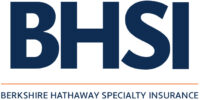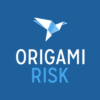On the 29th of October, the virtual conference “Managing ESG risk in a changed world” took place. Here you can find a short summary of the discussion panels of this conference.
David Howden, CEO of the Hyperion Insurance Group, explained that the most valuable thing in a business is its culture. This is what empowers people, makes them part of the company, makes them want to work for you, makes them stay. In the current situation with remote working this is more challenging than ever. Communication is key: it needs to be good, fast and effective. Through innovation companies can be or become sustainable. In the long term they must focus on the people, who are their biggest asset.
The Battle for Talent
In the panel with Christopher Croft, CEO of LIIBA were three BELRIM members: Gaëtan Lefèvre (John Cockerill), Emily Cox (Solvay) and Frederic Lycops (Recticel).
In order to attract and retain talent, companies should consider flexible benefits, as financial factors no longer seem to play the main role. Work/life balance is important. A mix of senior and young staff (which means a mix of experience) is key. Covid-19 complicates matters. People miss the live interaction and informal moments with their colleagues. Sometimes there’s an overkill of virtual meetings. People must be motivated and encouraged to turn on their cameras and actively participate. At Solvay there is a “coffee connection” where colleagues are randomly assigned to meet and greet online. Homeworking is becoming the rule. Team management in this new environment is a challenge. Interpersonal skills are required. A coach, HR, a manager should support the newcomers to help them taking part in the culture of the company and being part of a team. The fear of a drop in the company’s results due to Covid-19 should motivate everyone to stay committed throughout the crisis. On the other hand furlough schemes and government support are necessary to help the businesses to survive. Will China take over the job market? Their young people seem to work harder and have more discipline. This is contradicted by the fact that in Europe we have a better work/life balance and we are more productive with fewer hours. On the whole it seems that flexibility is most important to adapt to this everchanging world. Focusing on competencies and finding a balance between senior and new recruits will help find the magic blend.
Walking the Walk on Climate Change
In the panel on sustainability and climate change Carl Leeman (Katoen Natie) and Bart Smets (UMICORE) took part.
Climate risk assessment is a multidisciplinary project analyzing risk and opportunities.
In order to be sustainable and adapt to climate change, both risk managers explain how their companies comply to the regulations and the requirements of their clients. Solar panels and windmills are one example. Buildings are screened and improved and even built stronger than recommended. By screening the buildings, shortcomings are revealed and can be tackled. Water scarcity and drought are new challenges to be taken into consideration. Lowering the carbon footprint is high on the agenda. Responsible business travel policies are put in place as well as company car policies in which only electrical vehicles will be allowed from 2022 and until then only hybrid or electrical vehicles.
State of the market: some quotes
“Risk managers should step out of their comfort zones. Insurers and brokers don’t have all the solutions.”
“The company DNA decides is the risk manager is involved at the right level.”
“Insurers should pull their socks up and improve communications so renewals shouldn’t be so hard.”
“Buying is selling – risk managers should be clear about what they need and expect.”
“The insurance market is still not transparent enough.”







